Spatial Anthropology
Place, Memory, Affect
Series editors: Neil Campbell, Professor of American Studies at the University of Derby and Christine Berberich, School of Social, Historical and Literary Studies at the University of Portsmouth.
The Place, Memory, Affect series seeks to extend and deepen debates around the intersections of place, memory, and affect in innovative and challenging ways. The series will forge an agenda for new approaches to the edgy relations of people and place within the transnational global cultures of the twenty-first century and beyond.
Walking Inside Out , edited by Tina Richardson
The Last Isle: Contemporary Taiwan Film, Culture, and Trauma , by Sheng-mei Ma
Divided Subjects, Invisible Borders: Re-Unified Germany After 1989 , by Ben Gook
The Mothers Day Protest and Other Fictocritical Essays , by Stephen Muecke
Affective Critical Regionality , by Neil Campbell
Visual Arts Practice and Affect , edited by Ann Schilo
Haunted Landscapes , edited by Ruth Heholt and Niamh Downing
In the Ruins of the Cold War Bunker , edited by Luke Bennett
The Question of Space: Interrogating the Spatial Turn Between Disciplines , edited by Marijn Nieuwenhuis and David Crouch
Spatial Anthropology: Excursions in Liminal Space , by Les Roberts
Nature, Place and Affect: The Poetic Affinities of Edward Thomas and Robert Frost 19121917 , by Anna Stenning (forthcoming)
Spatial Anthropology
Excursions in Liminal Space
Les Roberts

London New York
Published by Rowman & Littlefield International Ltd
Unit A, Whitacre Mews, 26-34 Stannary Street, London SE11 4AB
www.rowmaninternational.com
Rowman & Littlefield International Ltd is an affiliate of Rowman & Littlefield
4501 Forbes Boulevard, Suite 200, Lanham, Maryland 20706, USA
With additional offices in Boulder, New York, Toronto (Canada), and Plymouth (UK)
www.rowman.com
Copyright 2018 Les Roberts
All rights reserved . No part of this book may be reproduced in any form or by any electronic or mechanical means, including information storage and retrieval systems, without written permission from the publisher, except by a reviewer who may quote passages in a review.
British Library Cataloguing in Publication Data
A catalogue record for this book is available from the British Library
ISBN: HB 978-1-7866-0637-2
Library of Congress Cataloging-in-Publication Data Available
ISBN: 978-1-78660-637-2 (cloth. : alk. paper)
ISBN: 978-1-78660-638-9 (electronic)
 The paper used in this publication meets the minimum requirements of American National Standard for Information SciencesPermanence of Paper for Printed Library Materials, ANSI/NISO Z39.48-1992.
The paper used in this publication meets the minimum requirements of American National Standard for Information SciencesPermanence of Paper for Printed Library Materials, ANSI/NISO Z39.48-1992.
Printed in the United States of America
For Ella and Marc, born in London, raised in the North West
Preface
In Search of the North-West Passage
The journeys and meanderings mapped out in these pages have sprung from a number of different wellsprings. As I prepare to embark on another excursion, it occurs to me that one of these starting points has been a desire to get lost. A journey out of knowledge, to paraphrase the poet John Clare, might be one way of looking at it. Another is to embark on a quest for landscapes that refuse to fit neatly into a frame, that bleed and flow with intentionality born of an urge to unmake the boundaries that hold things in place. Projection whether in the cartographic or psychoanalytic senses of the word always casts something of a relief map of the Self. To acknowledge the same is to step into a space that shimmers and buckles underfoot, terrain that fashions a tentative, provisional and less coordinated sense of being-in-the-world. A map is only ever as good as the mappings it sets in train. This book is a compendium of certain such mappings; the map, for its part, is a device to be squinted at when absolutely necessary but otherwise best left crumpled in the back pocket, the better to assist in the task of getting lost.
Skirting and progressively drifting into a field that some have begun to label spatial humanities but which, for reasons that I will expound further below, I am preferring to designate spatial anthropology my modus operandi (as a spatial humanist, spatial anthropologist, whatever) has been to confound an idea and practice of space that renders transparent its inherent inscrutability, or presumes to. If anything, opacity (of reason, knowledge, vision, instrumentality) may be taken as a quality that conveys certain merit insofar as it goes against the grain of what Henri Lefebvre dubbed the illusion of transparency (1991: 27), the epistemological fallacy that defines space as something that contains or that serves merely as a platform upon which social life, under the irradiating glare of rational perception, is transacted and rehearsed. To stumble, with disoriented but purposeful vision, into a nonsensical world where I am no more solid than the earth upon which I tread is to go some way towards buttressing a performative and embodied ontology of everyday spatiality. The idea of spatial anthropology that is explored in this book is, therefore, one that goes hand in hand with an experiential liminality that places selfhood, intersubjectivity and affectivity at the core of how we approach and think about the cultural production and consumption of space.
Moreover, in the spirit of dialectical enquiry, the intention of getting lost of attaining a state of productive spatial disorientation needs also to be recognised for what it really is: the intention to orientate anew. To secure, once more, a navigable passage after time spent all at sea is to reclaim or regain a semblance of structure from what anthropologist Victor Turner (1969) refers to as anti-structure: a liminal, flux-ridden state of betwixt-and-betweenness . To look upon everyday landscapes in terms of liminality and transitional phenomena is not to imbue them with fixed affordances or properties but rather to make explicit the phenomenological intensity of the spatially immersive world that informs who and what we are as embodied subjects, both adrift and tethered in equal measure. Getting lost in order to find oneself once more may have an air of clich about it, but in the context of what has become, in the academy at least, an increasingly audit-driven and instrumental culture of intellectual enquiry it is no less instructive. In her book Little Madnesses , Annette Kuhn quotes the psychoanalyst Donald Winnicott as saying, [i]f I knew what I was doing it wouldnt be research (2013a: 2). A front-loaded research strategy that knows where it is going before it gets there, or which valorises impacts over fine-grained detail that builds and grows until such time as any given impact reveals itself as impactful, is one that is hard to reconcile with an approach which embraces an ambulant spirit of uncertainty, confusion, speculation, curiosity, serendipity, happenstance or simply disorientation.
With these preliminary thoughts in mind, what I wish to explore by way of some brief introductory remarks is the mechanics of orientation and disorientation as refracted through the ruminative prism of the north-west passage. For current purposes, this concept serves as a metaphor that allows a number of key positionings that speak to the wider aims and scope of this book to be set out. These coalesce loosely around three categorical headings that are worked through below: geography , psychogeography , and (inter)disciplinarity .
Next page
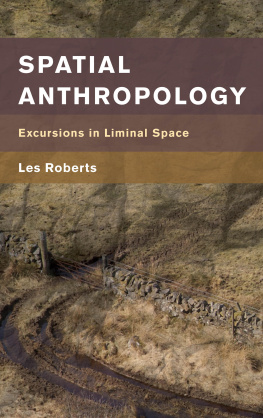
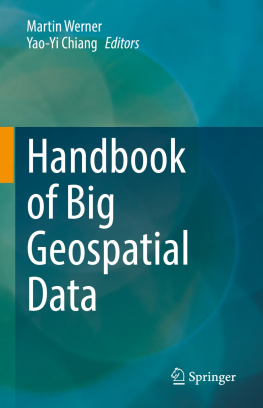
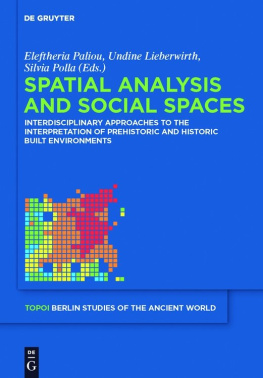
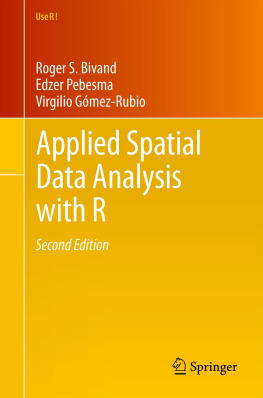

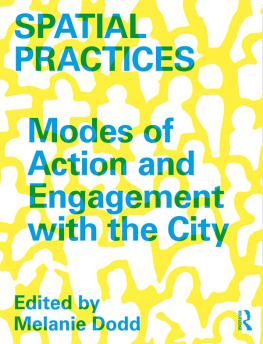
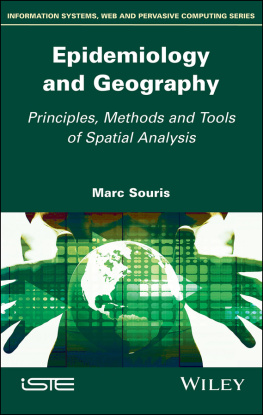
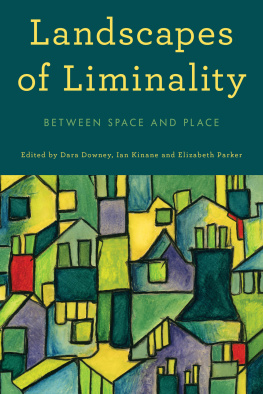
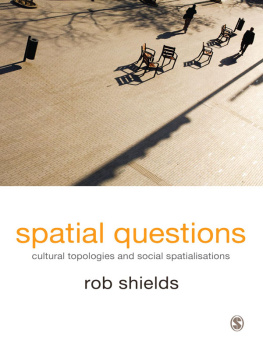
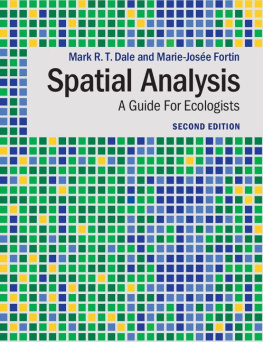
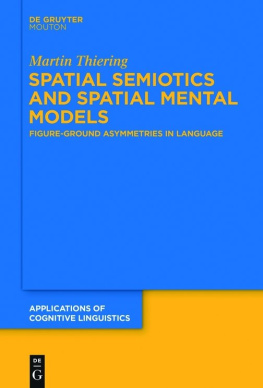
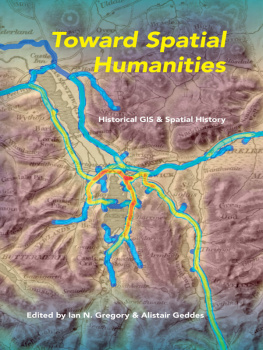

 The paper used in this publication meets the minimum requirements of American National Standard for Information SciencesPermanence of Paper for Printed Library Materials, ANSI/NISO Z39.48-1992.
The paper used in this publication meets the minimum requirements of American National Standard for Information SciencesPermanence of Paper for Printed Library Materials, ANSI/NISO Z39.48-1992.